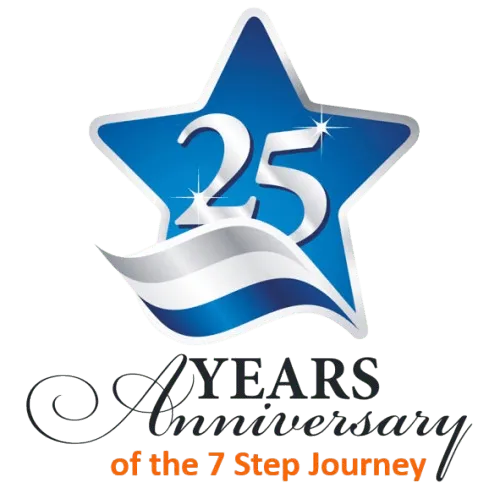Clare’s Clutter Clearing Story
Clare’s Clutter Clearing Story
As I look back on 2023, the phrase that sums it up best for me is that it has been a year of deeper learning and letting go.
2023 has been a year in which I have been reminded of two things: that it is not just physical clutter we have to clear, and that clearing your clutter is never a one-off event.
The most important Clutter Clearing concept to understand when you’re clearing your clutter is the Clutter Conveyor Belt. What I didn’t appreciate when I created the Clutter Conveyor Belt Concept, was that it doesn’t just apply to our physical clutter. It also applies to our mental and emotional clutter too, and we need to regularly review our mental and emotional health to ensure we have no mental and emotional clutter that is stuck on our conveyor belt and sabotaging our Best Life.
In the past, before I cleared my clutter, I didn’t even realise I had a mental and emotional conveyor belt, much less that it was cluttered. Emotions and feelings were irrelevant and ignored in my family, much less dealt with. The family habit was to ignore the mental and emotional clutter that accumulated, so In the past what’s what I did – ignored and dismissed emotions and feelings.
However, while on my own Journey, I learnt to recognise the signs that I am accumulating mental and emotional clutter, and to get the help of a therapist to explore and understand that clutter to get the learning and feedback from it so I can let it go.
It wasn’t until I cleared my own clutter that I learnt that my brother and I had grown up in an emotional void – with a family that never acknowledged, talked about, shared or explored feelings and emotions. When I tried to talk about them, they were always dismissed. I was never taught what they were or how to deal with them, not until I cleared my clutter and realised I had to learn so that I could live my Best Life.
Following the death of my brother in October 2022, I knew I was starting to accumulate significant amounts of mental and emotional clutter because of the circumstances surrounding his death and how I found out. I needed to understand why my brother’s illness and passing had not changed my parents desire to face the feelings and emotions of the past so they could fix their relationship with their surviving child. I needed to understand where their overwhelming need to control and fear of feelings, emotions and making themselves vulnerable came from.
I decided to use the tool I knew had helped me understand so much over the years – my LIFE Timeline. However, instead of focusing on MY life, I worked backwards from when I was born to capture what I knew about our family. Some was based on evidence, some on what little I had been told, and some on what family friends had told me.
Tracing my LIFE Timeline backwards helped me to start understanding the ‘why’s’ surrounding my family’s fear of feelings and emotions, and their fear of facing and dealing with them. It helped me understand and accept that my brothers passing was another grief and trauma in a long history of grief and trauma that had never been processed or dealt with, and his passing was never going to change that habit.
By going back in time, I could see all the trauma and unresolved grief that my parents had experienced before I was even born, and that had probably contributed to their fears, and their need for absolute control that had dominated my life with them.
The miscarriage that my parents went through at five or six months of pregnancy, ten months before I was born and that was never dealt with like it would today. There would have been no acknowledging the sex of the baby, naming it, having a funeral. There was no time for them to grieve, even if they had wanted to, because I was the rainbow baby conceived within weeks of that traumatic loss. I can’t even begin to imagine the trauma of that experience. No wonder my mother couldn’t cope nearly every Christmas and would take to her bed with depression. No wonder my mother almost certainly had undiagnosed and untreated post-natal depression after having me.
I could see, looking further back, that around the time they conceived the baby that they lost, my father’s father died of a heart attack. The grief of the miscarriage seven months later would have come on top of the grief of that loss. Unimaginable amounts of grief and trauma, all unresolved.
Back another year and my mother had my big brother, and by all accounts from family friends, she had severe post-natal depression that went undiagnosed and untreated, made worse by my father’s frequent absences from home because he was building his corporate career and working to provide the financial stability my parents had never had in their childhoods. Perhaps the post-natal depression was why she always said that she wished she’d never had children, and why he was sent away to boarding school.
Back a few more years, before my parents married, and my paternal uncle died in a motorbike accident on his way back home to get married. Back a few more years and both my parents grew up in the post-war rationing era, and their families struggled financially.
Back a few more years and my mother experienced family estrangement from an early age when her older half-brother left home at sixteen because he didn’t get on with her mother – his stepmother. Back a few years and my mother was conceived less out of choice, and more to conform with society’s expectations that a marriage ‘should’ have children.
My parents inherited coping mechanisms from their parent that were never – and have never – been questioned or challenged. Knowing and accepting this simple fact has enabled me to understand why they will never change. I am grateful for the deeper understanding I now have about why they always avoided talking about or dealing with feelings and emotions. I feel sad for all they’ve have experienced. I can see the pattern of grief and coping mechanisms my parents inherited have continued throughout own LIFE timeline. My brothers two attempted suicides, his manic depression diagnosis, his death from cancer at the age of 52. Grief and trauma in my lifetime, all left in the past, unresolved.
Going back before the start of my own LIFE Timeline has helped me make sense what my first therapist Meg told me when I first saw her. She told me – having known my brother and father – that my role in the family had become trying to keep my mother happy. I imagine after all the grief, loss and trauma that happened before I was born and was never dealt with because there was neither the will nor the time, I imagine I was the reminder to my mother that it’s not all bad. Unfortunately, the unresolved grief and trauma of the past meant those moments didn’t last.
Everyone’s LIFE Timeline and those of their families will have a similar catalogue of grief, loss and trauma – it’s part of life.
As Meg my first therapist taught me – it’s not what happens in our lives that matters as much as how – and if – they are acknowledged and dealt with. That’s what determines the effect they have on your present and future and whether history repeats itself.
Does all this new learning and understanding change the way I feel about being estranged from my parents? No. Being estranged doesn’t mean you don’t care. It doesn’t mean you don’t love. It means that you accept that it’s too uncomfortable and painful for people to face the feelings, emotions, traumas, and grief of the past in order to get the learning and feedback to enable them to have a healthy relationship in the present and future. It means that you accept that – for you – the relationship you had with them will never change, and that you have to let go so you can start living your Best Life without them in it.
You can clear your clutter fast, or you can clear your clutter forever, but you can’t clear your clutter forever, fast.
To find out how Clare can help you clear your clutter Forever, without the need for an expensive home visit, click here now: https://www.clutterclearing.net/clares-help-centre/

